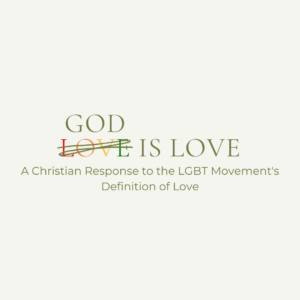In 2018, The Gospel Coalition held a conference called MLK50 where Matt Chandler preached these controversial words about his search for a pastor to lead a church plant of The Village Church:
“We’ve been looking and having conversations and I have called every African-American man I know and went, ‘Who you got? Here’s what I need. Help me!’ I got a lot of white friends but I would love to just say, ‘Here’s 2000 people and an $11 million building, go lead them.’ And so, one of the firms that’s helping us find men said, ‘Let me ask you a question, pastor Matt. If we find an Anglo 8 and an African American 7, which one do you want?’ I said, ‘I want the African American 7.’”
Matt Chandler spoke these words because he believes there is inherent moral virtue in ethnic diversity among a pastoral staff. Diversity, being a virtue to be pursued, led him to admit to racist hiring practices condemned in scripture (Jas 2:1).
But this is a common belief in our current culture. In decades past, pastors were more honored for having larger churches. But today, the pastors with more diverse congregations and staff are honored to a greater degree. This raises the question: Is diversity itself a moral virtue? Or, put differently, is it something to be pursued? For the answer, we turn our attention to Acts 6. The first verse reads this way:
“Now in those days, while the disciples were multiplying in number, there was grumbling from the Hellenists against the Hebrews, because their widows were being overlooked in the daily serving of food.”[2]
There was, in the early stage of the church, a division among ethnic lines. Matthew Henry defines the Hellenists as “the Jews that were scattered in Greece, and other parts, who ordinarily spoke the Greek tongue, and read the Old Testament in the Greek version, and not the original Hebrew, many of whom being at Jerusalem at the feast embraced the faith of Christ, and were added to the church, and so continued there.” [3] The Biblical narrative does not treat the accusation as a false one but plainly admits that the Hellenist widows were, in fact, being overlooked in the distribution of the food. The apostles, becoming aware of this, took action to preserve the unity of the body of Christ:
“So the twelve summoned the congregation of the disciples and said, ‘It is not pleasing to God for us to neglect the word of God in order to serve tables. Therefore, brothers, select from among you seven men of good reputation, full of the Spirit and of wisdom, whom we may put in charge of this need. But we will devote ourselves to prayer and to the service of the word.’” (Acts 6:2-5)
The apostles were busy studying and delivering the word of God to His people. They did not dare displease God by abandoning their call to teach Christ’s sheep, but they were willing to appoint capable men from the church to be in charge of this important need. The qualifications for these new leaders would draw criticism from today’s social justicians. The qualifications were simply three things: A good reputation, an abundance of the indwelling Spirit, and wisdom. Although the division in the church was among ethnic lines, the men to be put in charge of the distribution of food were to be simply honorable, godly, and wise. No diversity quota was commanded here, nor in the letters from Paul regarding the qualifications of church officers (1 Tim 3:1-13, Titus 1:5-9). The apostles knew that the division was ethnic, but the problem was not. The problem was, as the solution was, a spiritual one. The former distributors of food to the widows were men with sinful character. So, the new leaders must be exemplary Christians. They must have a reputation of holding their faith in the Lord Jesus without personal favoritism (Jas 2:1). They must be full of the Holy Spirit, boldly resisting those who thought that, in the body of Christ, there still remained a division among Jews or Greeks (Gal 3:28). They must be able to wisely correct those with suspicion or resentment among the diverse body of Christ. The leaders must be holy and nothing more. Diversity should not be pursued, though it should not be stifled either.
The Biblical model flies in the face of our current culture’s solution of “elevating black voices.” Pursuing diversity in positions of power has done little to nothing to help unify our institutions. And why? Because the problem is not ethnicity; it’s sin.
And, as you might suspect from a godless culture, their solution is itself a sinful one. Whenever diversity is pursued, racism becomes necessary practice. Wherever church leaders seek to make their elders look proportionately like representations of their culture, they will inevitably disadvantage one racial group or another. The black pastor in Jackson, Mississippi (80% black) along with the white Pastor in Lincoln, Nebraska (88% white) will lament that their churches are not more diverse. This guilt is not produced by the word of God but by “philosophy and empty deception, according to the tradition of men” (Col 2:8).
The pursuit of the church should not be diversity, but unity. The apostle Paul calls the Ephesian church to walk in a manner worthy of God’s calling “with all humility and gentleness, with patience, bearing with one another in love, being diligent to keep the unity of the Spirit in the bond of peace” (Eph 4:2-3). We should be pursuing unity amid the diversity that we already have in the church. Among God’s people, there is diversity of skin color, age, gender, class, weight, intelligence, and more. But with all these differences, we focus most of all on what we have in common.
“There is one body and one Spirit, just as also you were called in one hope of your calling; one Lord, one faith, one baptism; one God and Father of all who is over all and through all and in all.” (Eph 4:4-6)
[1] “A House Divided Cannot Stand.” YouTube, YouTube, 20 Apr. 2018, https://www.youtube.com/watch?v=-wmj0i1oH1Q. (25:10) Accessed 26 Oct. 2023.
[2] Unless otherwise noted, the Bible quotations and references use the LSB.
[3] Henry, Matthew. “Matthew Henry Commentary on Bible Gateway Passage: Acts 6 .” Bible Gateway, www.biblegateway.com/passage/?search=Acts+6&version=LSB. Accessed 26 Oct. 2023.






